General
Scholarly Book launched to immortalize Prof. James Patrick Manyenye Ntozi
Published
9 years agoon
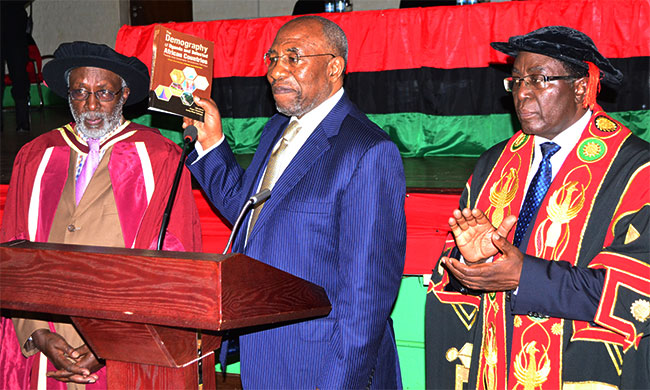
Scholars from the field of Demography and Population Studies have written a scholarly tribute to Prof. James Patrick Manyenye Ntozi; celebrating his 45 years of dedicated and distinguished service in the field of demography at Makerere University, Uganda, Africa and beyond.
The book titled: Demography of Uganda and Selected African Countries: Towards more Sustainable Development Pathways was officially launched by the Prime Minister of the Republic of Uganda Rt. Hon. Dr. Ruhakana Rugunda at a high profile ceremony that was organized by Makerere University College of Business and Management Sciences (CoBAMS) and the Centre for Population and Applied Statistics (CPAS).
Edited by Prof. John Oucho, Dr. Gideon Rutaremwa and Prof. Jockey Baker Nyakaana, the book will immortalize Professor Ntozi’s work and inspire other demographers and their colleagues elsewhere to undertake a similar exercise for their deserving mentors. “We hope readers will find this book a fitting accolade to a man who dedicated his life to scholarship in demography and through which his students and compatriots alike have laid strong foundation for immortalizing the scholar.”
Speaking to the congregation in the Makerere University Main Hall on 23rd March 2017, Rt. Hon. Dr. Ruhakana Rugunda commended Prof. James Manyenye Ntozi for being a strong fighter with a dedicated spirit in liberating his country from poverty. According to Rt. Hon. Rugunda, Prof. Manyenye Ntozi is a unique and outstanding personality whose works have shaped the field of demography in Makerere University, the nation and indeed the continent.
“I congratulate you on this great achievement. I would like to say that your distinguished contribution to the scholarly world and your excellence in the field of Demography and Population Studies has inspired many people around the globe. I am happy to say that you will always be remembered as a famous person that has taught, mentored and nurtured many people on this continent,” the Prime Minister said.
The Prime Minister appreciated Makerere University’s efforts to recognize distinguished academicians and called upon other institutions to emulate Makerere University so that academicians receive the recognition they deserve. He shared concern on the policy of retiring professors, and advised Makerere University Management to engage the concerned Ministries so that the University continues to benefit from the treasure within professors perpetually.
Speaking about the book, the Prime Minister said, “This book is very relevant and specifically talks about the needs of our country Uganda. I therefore thank the authors who contributed articles to this book. I also thank the editors for the wonderful job well done.”
Makerere University Vice Chancellor Prof. John Ddumba-Ssentamu acknowledged Prof. Manyenye Ntozi’s efforts in promoting Makerere University locally and globally through his tremendous achievements in Demography and Population Studies. According to Prof. John Ddumba-Ssentamu, Prof. Manyenye Ntozi has diligently served Makerere University in various capacities.
“Prof. Manyenye Ntozi has served as a Lecturer, Head of Department, Dean, Member of Senate and Ambassador of the University to the outside world. His unique skills and knowledge in the field of demography, acquired over a period of more than four decades of scholarly work, have been utilized in the world over. This is evidenced by his various appointments to Boards of organizations and parastatals, as well as international engagements as Visiting Scholar and Researcher,” he said.
Prof. Ddumba-Ssentamu congratulated Prof. Manyenye Ntozi upon being recognized through a scholarly tribute that presents him as a brilliant academician with remarkable scholarly services in the field of Population studies.
“There is truly no greater achievement for an academician than to be recognized by not only your peers but your students as well. Congratulations! The book has been put together by Prof. Ntozi’s compatriots and students across the African continent. It is, therefore, a product of highly organized collaborative effort, achieved with professional support of the Fountain Publishers,” said the Vice Chancellor.
In his keynote address titled Old is Gold; Harnessing Academicians in old Age, John Oucho a Professor of Demography and Geography at the University of Nairobi said that there is a need to respect and fully utilize knowledge and advice of old people. Defining the two terms, Prof. Oucho stated that Old is that experience a person has gained over the years and gold is one of the expensive metals in the metal industry.
Professor Oucho said that the experience that old people like Prof. Ntozi have, is as expensive as gold because they have taken many years to learn the lessons of life as well as accumulating a wealth of experience. “Therefore don't disrespect or neglect them because they are old but do take care of them as precious gold,” he said.
Citing a verse from the book of Exodus, Prof. Oucho encouraged the young generation to respect and show love to the old people since they are a source of knowledge and inspiration to them. “Exodus 20:12 says; “Honor your father, your mother that your days may be prolonged in the land which the LORD your God gives you”. We academicians we are like fathers of our students. Therefore you should respect us through giving us time, listening to us, being polite to us and asking for our advice. We must strive to have a society for all ages including the old and retirees. Discriminating against old academicians is like discriminating your own parents,” he said.
In the spirit of harnessing academicians in old age, Prof. Oucho appealed to Makerere University to appoint Prof. James Patrick Manyenye Ntozi-Professor Emeritus.
James Patrick Manyenye Ntozi is a Professor of Population Studies at Makerere University. He is a Medical Demographer and Statistician by training whose distinguished experience is well observed in conducting evaluation, needs assessment and baseline studies at international and national levels. His most recent monitoring and evaluation work included evaluating the PEPFAR project in Nigeria for the USA National Academy of Sciences and Congress (2005 – 2007).
Introducing him, as a great scholar, the Minister of Tourism, Wildlife and Antiquities Prof. Ephraim Kamuntu said Prof. Ntozi’s legacy will live on through his works, scholarship and mentorship. He described Ntozi as a faithful and lovable person, very consistent and focused.
“I have known Ntozi since 1960, he is a dedicated fighter. He is a father who has managed to devote considerable amount of time to bring up his children. Ntozi is an excellent husband to Aidah Ntozi,” he passionately said.
The book titled, Demography of Uganda and Selected African Countries: Towards more Sustainable Development Pathways is a climax of an idea by Prof. Ntozi’s peers and students who thought of writing a paper to recognize their lecturer. When the staff in the Department of Population Studies committed themselves to writing a book, the idea of writing a journal article metamorphosed into a book that would forever immortalize Prof. Manyenye Ntozi.
According to Dr. Abel Nzabona, one of Prof. Ntozi’s students and writer of the book, Prof. Ntozi is Uganda’s most illustrious population demographer. He will always be remembered for establishing the Department of Population Studies at Makerere University; attracting funding to support national and international programmes in the field of population studies and demography; and his track record in scholarship, mentorship and career guidance. He applauded Prof. Ntozi for over 75 papers published in peer reviewed journals.
Highlighting the book writing process, Dr. Nzabona said 15 writers and 4 editors from countries namely Uganda, Tanzania, Kenya, Nigeria, France and organizations including, Uganda National Bureau of Standards provided tremendous contributions to the book. He paid special tribute to all authors of the 16 Chapters who produced the material that builds the book. One of the Editors, Dr. Gideon Rutaremwa shared with the audience a brief on the book composition and contents.
It was a nostalgic moment when Prof. Ntozi clad in his academic regalia shared special moments regarding his student life at Makerere University.
“I joined Makerere University in June 1968 as an undergraduate student pursuing Bachelor of Science (Economics and Statistics)-Institute of Statistics and Applied Economics and I completed in March 1971. I registered for my Masters in the same Institute in September 1971 and completed in July 1973. I completed a PhD in Medical Demography in 1977. Because of the political turbulence during the Idi Amin Regime, I stayed in the University of Nairobi for two years. I returned to Makerere University in 1979, and since then, I have remained here despite many temptations in form of greener pastures at regional and international levels. I made a decision to stay at Makerere University to serve my alma mater and my country-Uganda. I did not abandon Makerere University.”
Prof. Ntozi also applauded Prof. Livingstone S. Luboobi, former Vice Chancellor of Makerere University, who was part of the audience for choosing to stay at Makerere University.
During his stay at Makerere University, Prof. Ntozi significantly contributed to the evolution of demography and population studies including mobilization of resources from bodies such as Rockefeller Foundation, World Bank, IDRC and National Population Council among others.
Prof. Ntozi expressed gratitude to his students and the authors for recognizing his contribution to the academia while he is still alive. He thanked the contributors for the scholarly tribute that will forever preserve his legendary work as Uganda’s most illustrious medical Geographer.
“I take this opportunity to appreciate all these efforts. In a special way, I thank Associate Professor Gideon Rutaremwa for spearheading efforts to publish this book. I also thank Prof. John Oucho, from the University of Nairobi for successfully accomplishing the task of Chief Editor of the publication and my wonderful students; I am more delighted to know that my students whom I trained and taught have vividly participated in putting together this piece of scholarly work,” he said.
Prof. Ntozi commended Dr. Fredrick Tumwine, Dr. Abel Nzabona and Mr. John Mushomi for working tirelessly to produce a piece of work that their teacher can proudly identify with. He thanked the College of Business and Management Sciences under the leadership of Dr. Eria Hisali for providing all the support required by the Centre for Population and Applied Statistics (CPAS) to publish the book.
He equally acknowledged the efforts of the Centre for Population and Applied Statistics (CPAS) under the able leadership of Mrs. Ssekiboobo Agnes for successfully hosting this publication process of the book. He also thanked Makerere University and the Government of Uganda for providing an environment that is conducive for scholars to freely write and publish their work.
According to Prof. Ntozi, his recognition will set the precedent at Makerere that more scholars/academicians ought to be recognized for the precious time devoted to the University. He was happy for his tremendous contribution and achievements in the university when he said, “I am happy that I have diligently served Makerere University with passion. I am sure that I will fulfill my decision to stay in my Alma Mater and my country Uganda as long as my life is not in immediate danger,” said James Ntozi.
Prof. James Patrick Manyenye Ntozi received a plaque from Uganda Bureau of Statistics presented by the Executive Director, Mr. Ben Paul Mungyereza in recognition of Prof. Ntozi's outstanding work at Makerere University and invaluable support to Uganda Bureau of Statistics. The plaque was presented to him by the Prime Minister Rt. Hon. Ruhakana Rugunda.
Dr. Fredrick Ruguma Tumwine who was supervised by Prof. Ntozi both at Masters’ and PhD, praised Prof. Ntozi for changing him from a physical into a human geographer. Representing students taught by the Professor, the overjoyed Tumwine said that Prof. Ntozi will never fade from the minds of his students, owing to the unique and fatherly character he always exuded. “He has always been good at time management and perfect in the way he articulates points. He is a superb supervisor,” he said.
Giving a vote of thanks, the Dean-School of Statistics and Planning, Dr. Robert Wamala thanked the Government, Makerere University, the family of Prof. Ntozi, authors and students for their contribution towards the process of honouring Prof. Ntozi.
The students from the Department of Performing Arts and Film together with the Head of Department Dr. Sylvia Antonia Nannyonga-Tamusuza treated guests to energetic performances including special presentations depicting the academic journey of Professor James Patrick Manyenye Ntozi.
Article by Mak Public Relations Office
You may like
General
Makerere University Writing Centre trains first cohort of staff on professional minute writing
Published
3 days agoon
November 7, 2025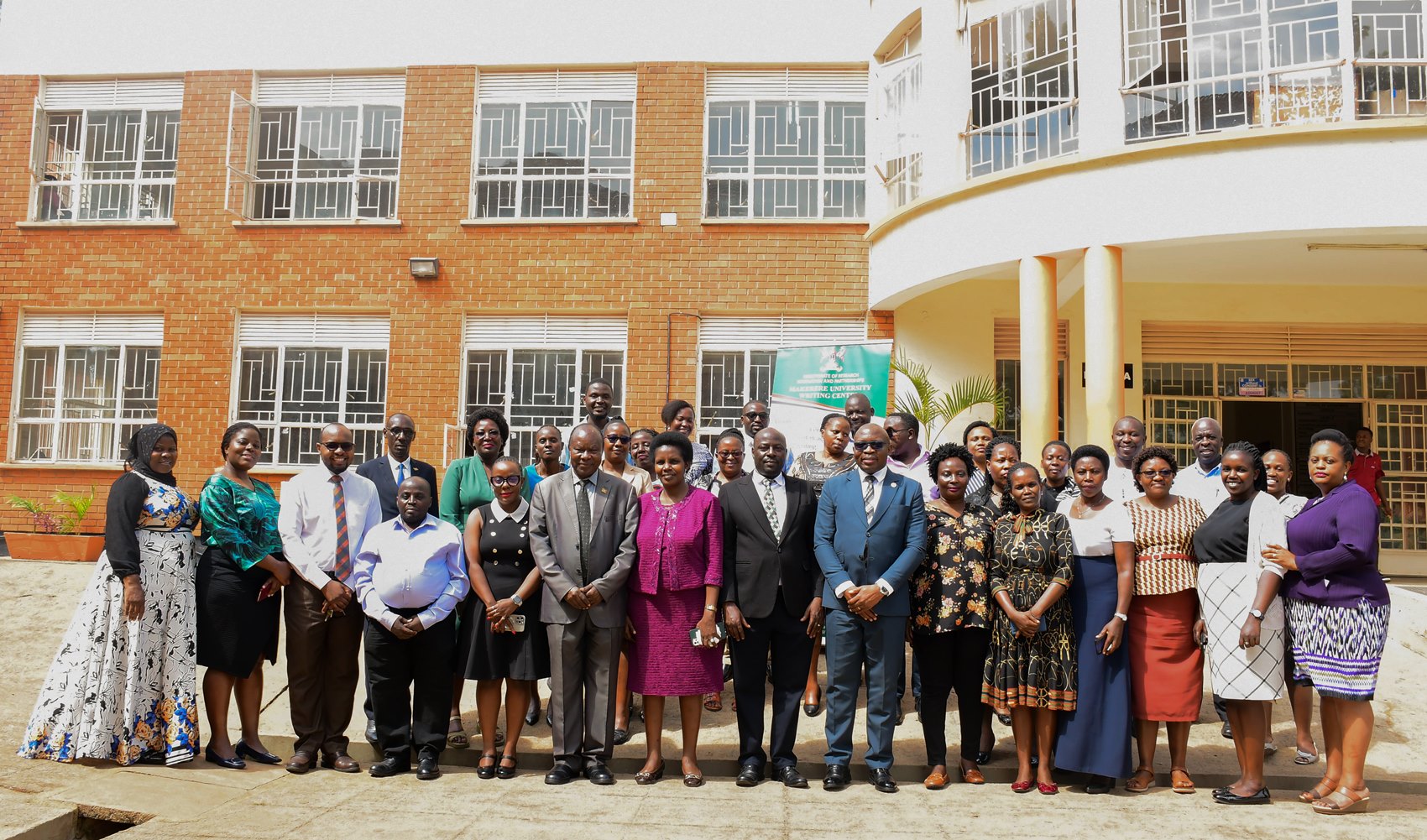
By Christopher Kaahwa and Ritah Namisango
On 6th November 2025, the Makerere University Writing Centre (MakWC) held a training workshop aimed at enhancing professional writing skills among University staff.
Focusing on official documentation and record keeping, the training, hosted at the School of Business Conference Hall, attracted participants from different University units, including Assistant Administrative Officers and Assistant Academic Registrars. This marked the first cohort of trainees to benefit from the program, which covered topics such as the fundamentals and responsibilities of a minute taker, writing techniques, policy and legal considerations, e-meeting platforms, and the ethical use of Artificial Intelligence (AI).
In her opening remarks, Mrs. Patience Rubabinda Mushengyezi, the Deputy Academic Registrar, who represented the Academic Registrar, Professor Buyinza Mukadasi, commended the Writing Centre for championing the growth of writing skills across the University. “I want to thank the team from the Writing Centre for considering the Academic Registrar’s Department. Writing is central to everything that we do – from keeping accurate minutes to communicating decisions. This training will greatly improve our writing skills,” she said.
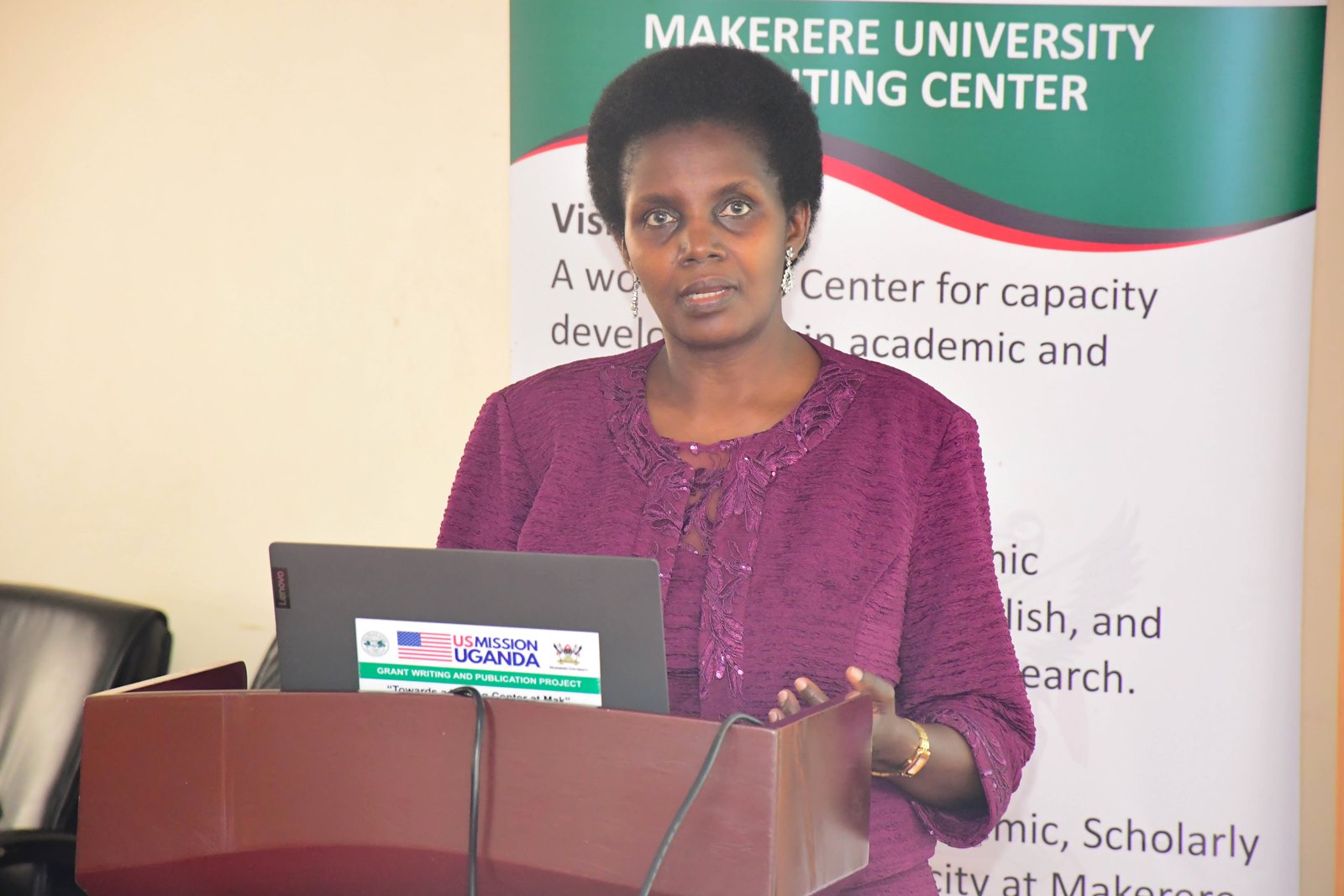
Mrs. Mushengyezi emphasized that official records, especially minutes, must be accurate, ethical, and well-structured. She reminded participants that minutes are not mere summaries, but legal and public documents that can serve as evidence in administrative or legal matters. “When we write minutes, we must remember they represent official proceedings and can be used in courts of law. This calls for professionalism, clarity, and ethical responsibility in your daily work,” she stated.
Speaking during the workshop, Professor Fredrick Jones Muyodi, the Team Leader, Makerere University Writing Centre (MakWC), explained that the Centre is pivoted to support the University’s strategic goal of becoming a research-led institution by 2030. Established and institutionalized in 2025 by the University Senate and Council, the Centre operates under the Directorate of Research, Innovations, and Partnerships (DRIP).
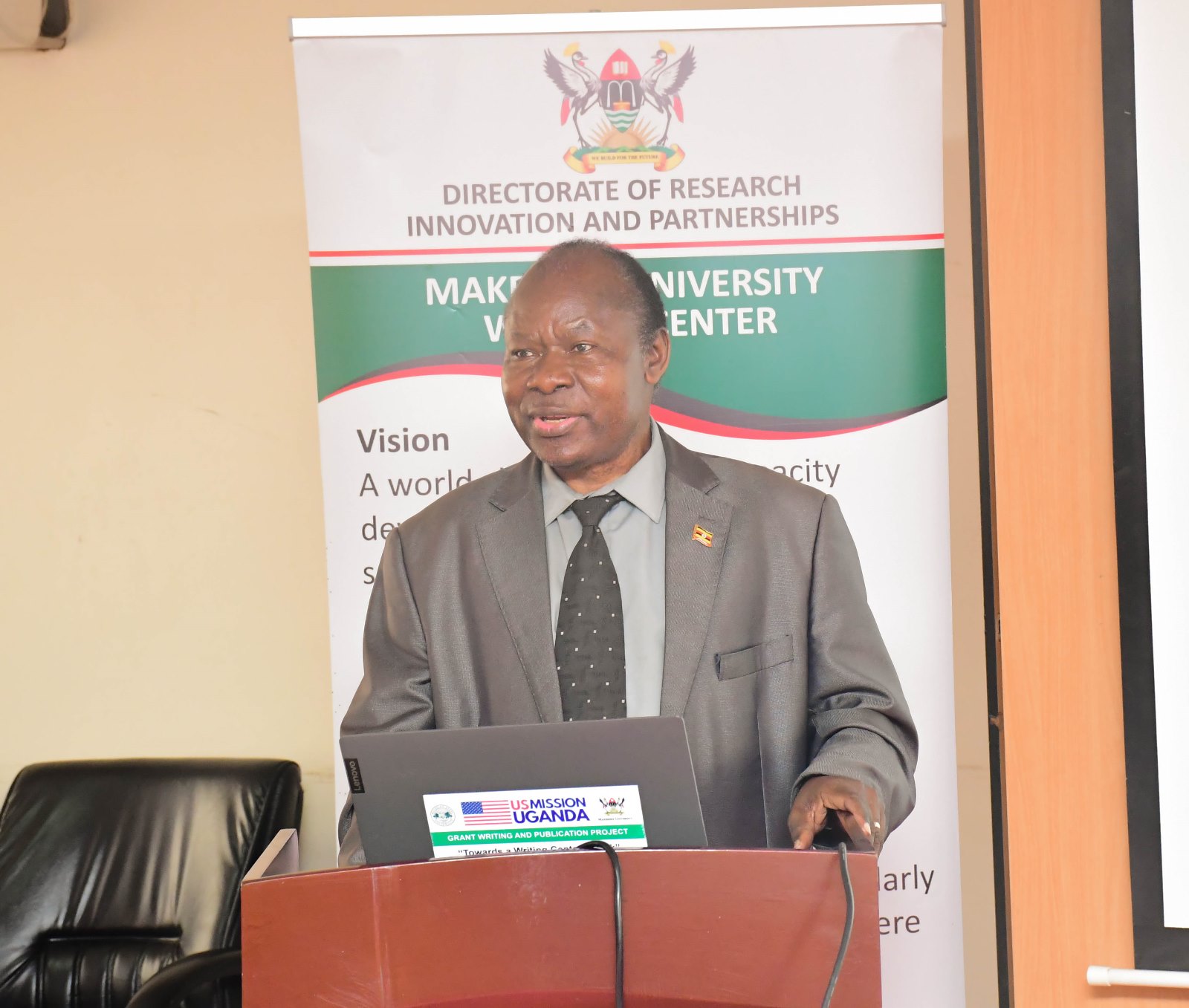
Professor Muyodi shared that the Centre has developed a comprehensive training and mentorship program to build writing skills across the University and beyond. The program will involve experts and mentors experienced in writing, collaborative research, and publication. It will use a hybrid approach, combining traditional teaching with online learning, case studies, and hands-on practice.
He also revealed that the Centre will offer short courses, lasting up to two weeks, in key areas such as academic, technical and scientific writing, editing and proofreading, policy brief and report writing, writing for community engagement, professional writing for administrators, and publishing. “These courses will strengthen the writing capacity of both staff and students while promoting research translation and effective communication,” he said.
On behalf of the Writing Center, Professor Ronald Bisaso commended the support from the Directorate of Human Resource and the Academic Registrar’ department for the identification of capacity development gaps, that provided the basis for the choice of topics and training facilitators.
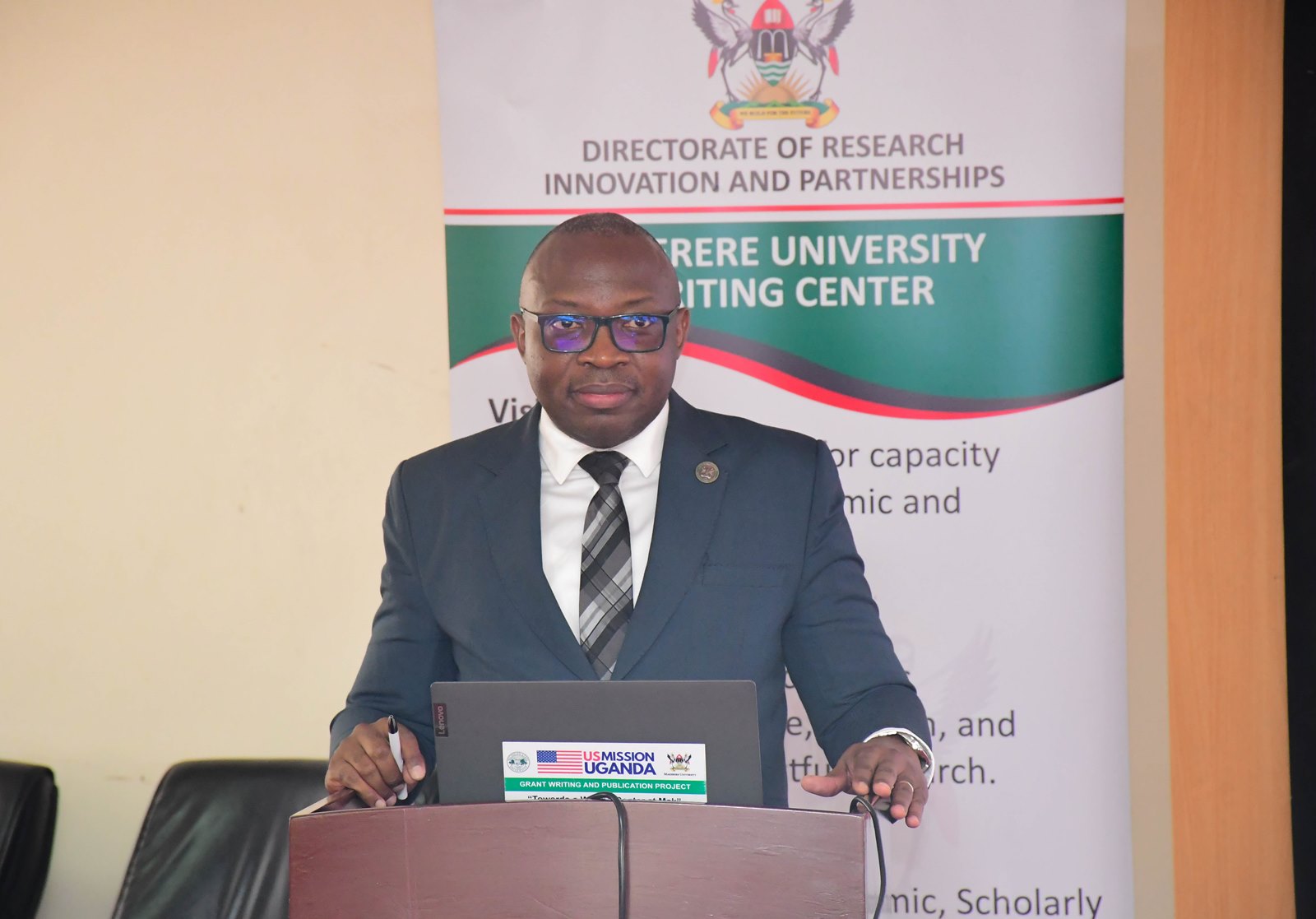
During her presentation on the Fundamentals and Roles of a Minute Taker, Mrs. Mushengyezi underscored the importance of understanding institutional structures and governing frameworks before taking on the role of writing minutes. She explained that Makerere University’s governance system – from the University Council and Senate down to College Boards and departmental committees, operates under clear mandates, which minute writers must understand to accurately record proceedings.
She noted that effective minute writing begins with proper preparation, which includes knowing the committee composition, consulting the Chairperson about meeting details, and ensuring members receive timely notices and agendas. She advised participants to differentiate between regular, special, and emergency meetings, as each requires a unique approach to documentation. Drawing from experience, she encouraged participants to arrive early for meetings, verify meeting logistics, and carry official record books to ensure accuracy. “A well-prepared minute writer, not only captures discussions accurately, but also upholds the credibility of the meeting,” she remarked.
Mrs. Proscovia Nakayiki, Acting Deputy Academic Registrar (Examinations and Transcripts), led a session on Writing Techniques. During the session, she emphasized that minutes are vital for accountability, serve as a record for future reference, and inform those who missed meetings. “Well-written minutes should tell a clear, flowing story that remains meaningful even years later,” she said.
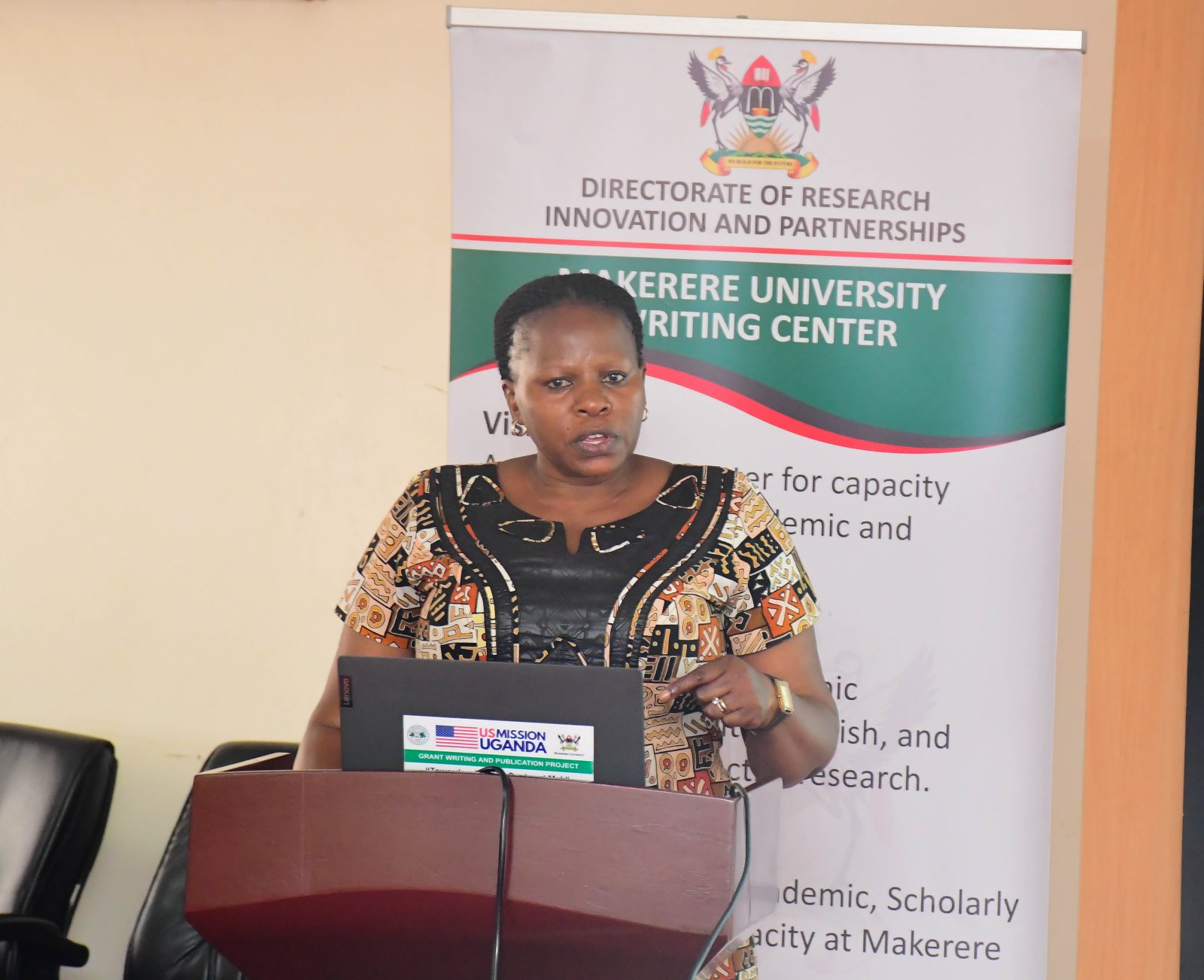
Ms. Nakayiki stressed that minute writing requires preparation and structure. She advised secretaries to be familiar with the meeting type and agenda, list all attendees and absentees, clearly summarize discussions, and outline action points. She also encouraged the use of templates, testing of recording devices beforehand, and remaining attentive during meetings to capture key decisions accurately.
Presenting on Policy and Legal Frameworks for Minute Writing, Ms. Esther Kabinga, Principal Legal Officer discussed the laws and policies that govern record keeping in Uganda. She noted that minutes are crucial for transparency and accountability, citing laws such as the Companies Act (2012), Public Finance Management Act (2015), and Access to Information Act. She also referenced some of Makerere University policies, including the Record Keeping Policy, Academic Records Management Policy (2022), and Communications Policy (2013). “Proper documentation protects both the institution and the individuals involved in decision-making,” she emphasized.
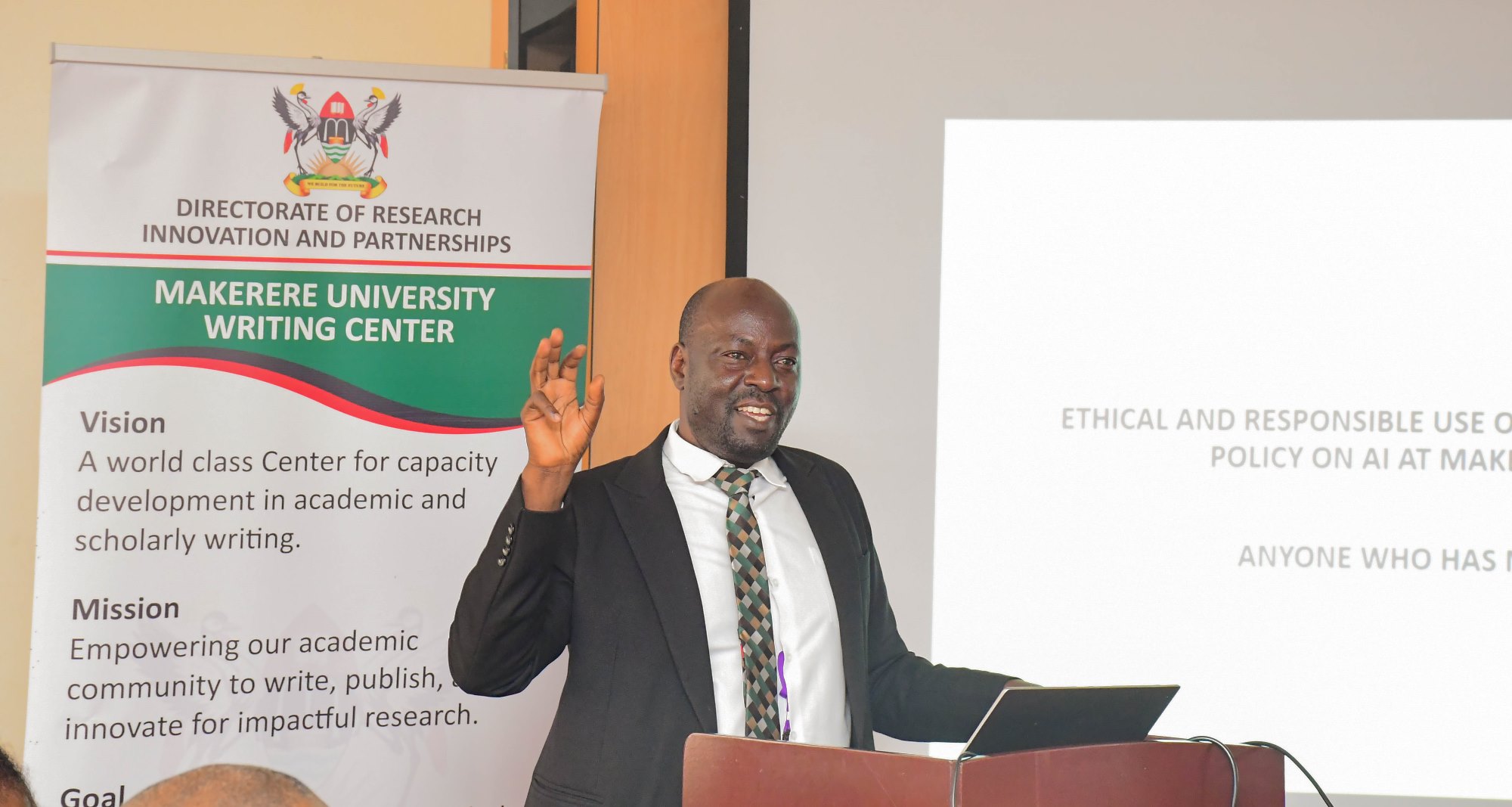
Discussing the Ethical and Responsible Use of Artificial Intelligence (AI), Prof. Paul Birevu Muyinda, Director of the Institute of Open, Distance and e-Learning, noted that AI has become part of everyday life. He commended Makerere University for adopting an official AI policy that promotes its ethical, inclusive, and responsible use in teaching, research, administration, and innovation. He urged participants to use AI as a supportive tool, combining it with human judgment and creativity while writing.
Building on to the aforementioned presentation, Dr. Godfrey Mayende, the Head, Department of Distance Learning and Deputy Director at the Institute of Open, Distance and eLearning, highlighted the role of digital platforms such as Zoom, Microsoft Teams, Google Meet, and WebEx in improving meeting efficiency and documentation. He pointed out that these platforms provide useful features like recording, transcription, and chat functions that make meetings more interactive and inclusive. “Familiarity with these tools enhances accountability and ensures that discussions are well-documented and easy to retrieve,” he advised.
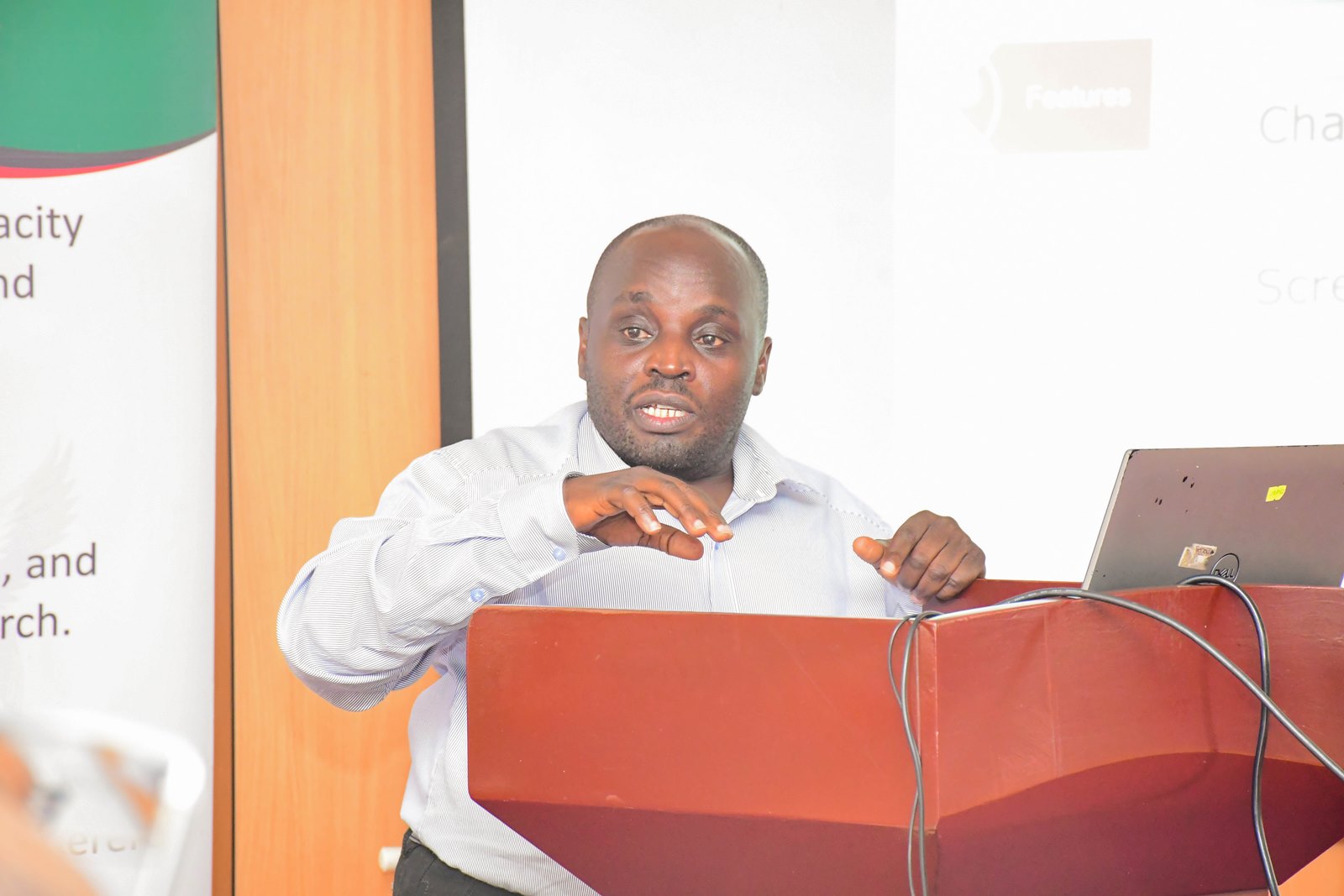
Writers: Ritah Namisango is a Principal Communication Officer at Makerere University. Christopher Kaahwa contributed to this article as a Volunteer. Christopher Kaahwa is a Graduate of Makerere University-Bachelor of Journalism and Communication.
General
Meet Sedrick Nuwagaba, a Mastercard Foundation Scholars Program Alumni Contributing to Uganda’s Oil & Gas Industry
Published
5 days agoon
November 5, 2025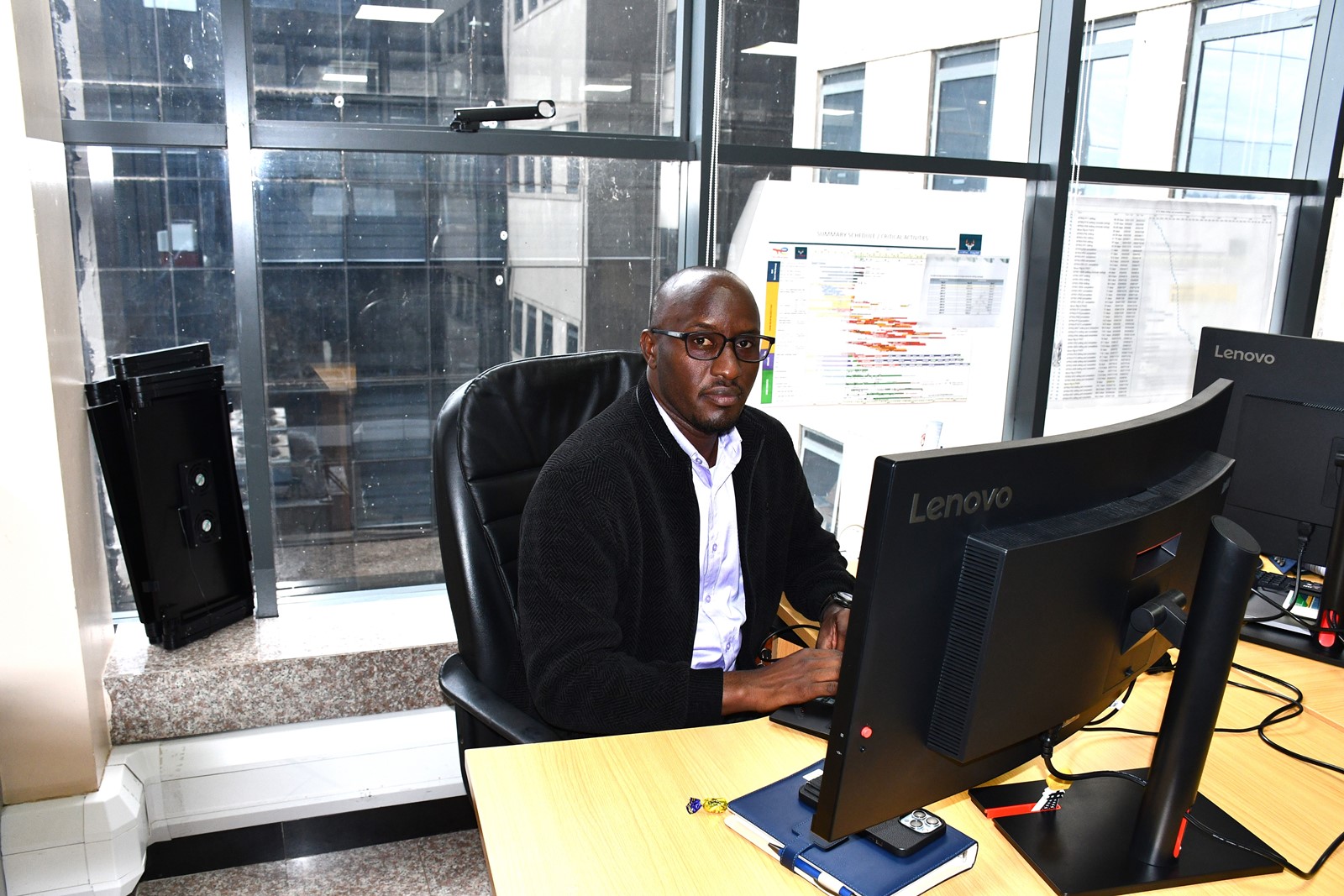
Sedrick Nuwagaba, a 35-year-old petroleum engineer, is actively contributing his expertise to the Petroleum Authority of Uganda, which regulates the oil and gas sector. He obtained his Bachelor of Science in Petroleum Geoscience and Production from Makerere University in 2021, an opportunity he accessed through the Mastercard Foundation Scholars Program. Sedrick’s educational qualifications and professional responsibilities exemplify his commitment to advancing Uganda’s oil and gas sector.
Who is Sedrick Nuwagaba?
Sedrick was born on February 1, 1990, in Kashari, located within the Mbarara district of Western Uganda. He spent his early childhood in a large family, where he faced many challenges that shaped his resilient character. By the age of 14, Sedrick had become the primary breadwinner for his immediate family, comprising his mother and two sisters. His unwavering commitment to their well-being remains evident to this day.
To support his family during these formative years, Sedrick took on a variety of jobs in his community. These early experiences cultivated in him resilience and tenacity, qualities that have significantly contributed to his success as a petroleum engineer.
Following these family challenges, Sedrick and his immediate family relocated from Kashari to a new area in what is now Lyantonde district, where they continue to reside. His journey not only reflects personal growth but also underscores a steadfast commitment to uplifting those around him.
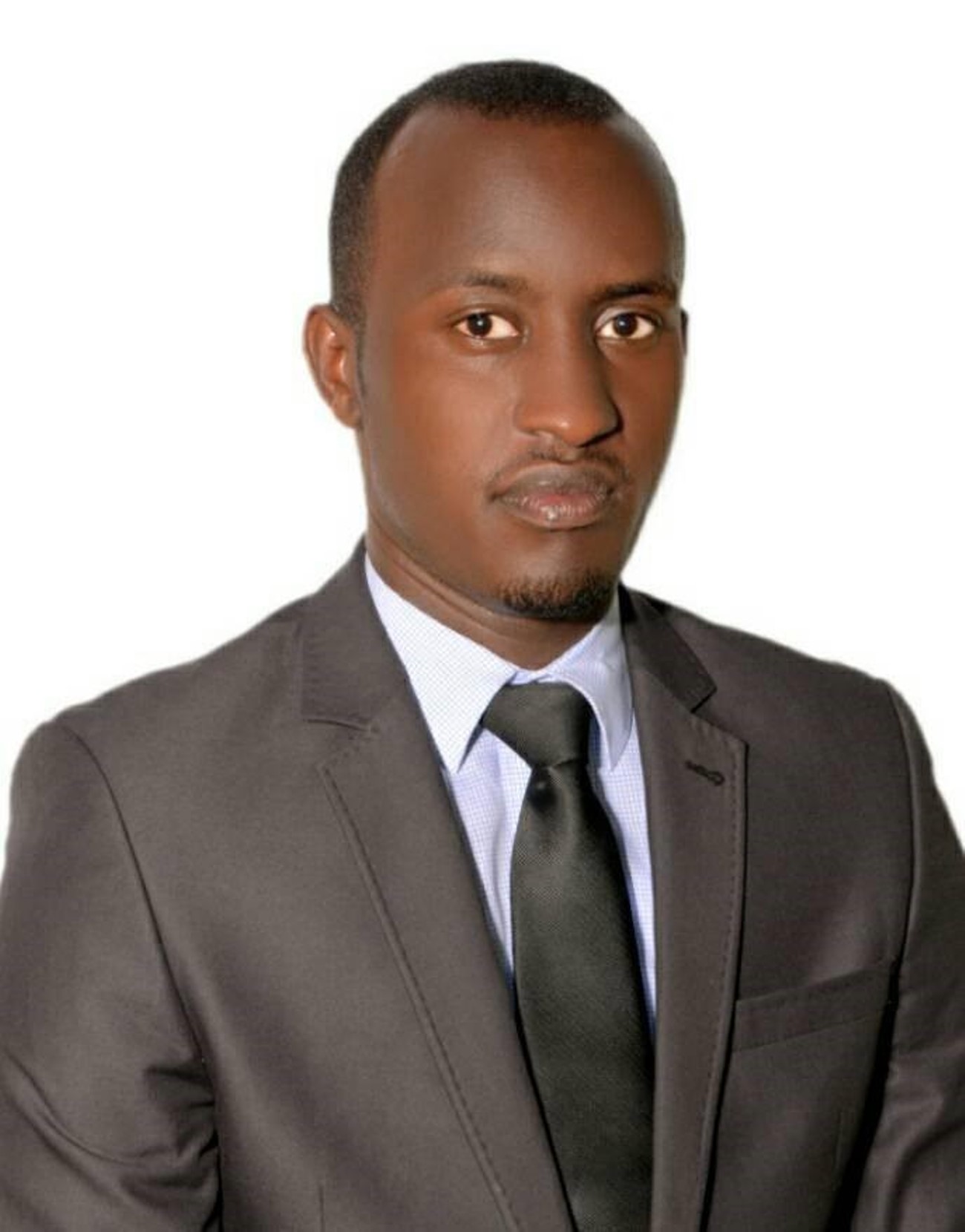
Early Education
The implementation of Universal Primary Education (UPE) in Uganda in 1997 was a pivotal development for Sedrick, facilitating his enrollment at St. Martin Lyantonde Primary School at the age of seven, which was conveniently located near his residence. Sedrick expresses deep appreciation for this initiative, commenting, “Without UPE, I might not have had the opportunity to pursue my education. It truly opened the door for me to attend school and engage in learning.” Despite confronting considerable challenges, including a lack of necessities such as food, Sedrick distinguished himself academically. He achieved top candidate status among UPE schools in his district, earning an impressive seven aggregates in the Primary Leaving Examinations—a remarkable accomplishment given the adversities he faced.
Pursuing Secondary Education
Sedrick faced significant challenges after earning 7 points in the Primary Leaving Examinations, as he was unable to secure a bursary. At that time, alternative arrangements for Universal Secondary Education were limited, which made it difficult for him to continue his education. However, demonstrating remarkable resilience, Sedrick sought work at 14 to fund his secondary education. Through his determination and resourcefulness, he enrolled at Victoria Western College, a small private school in his area, where he attended for three years, reaching Form 3.
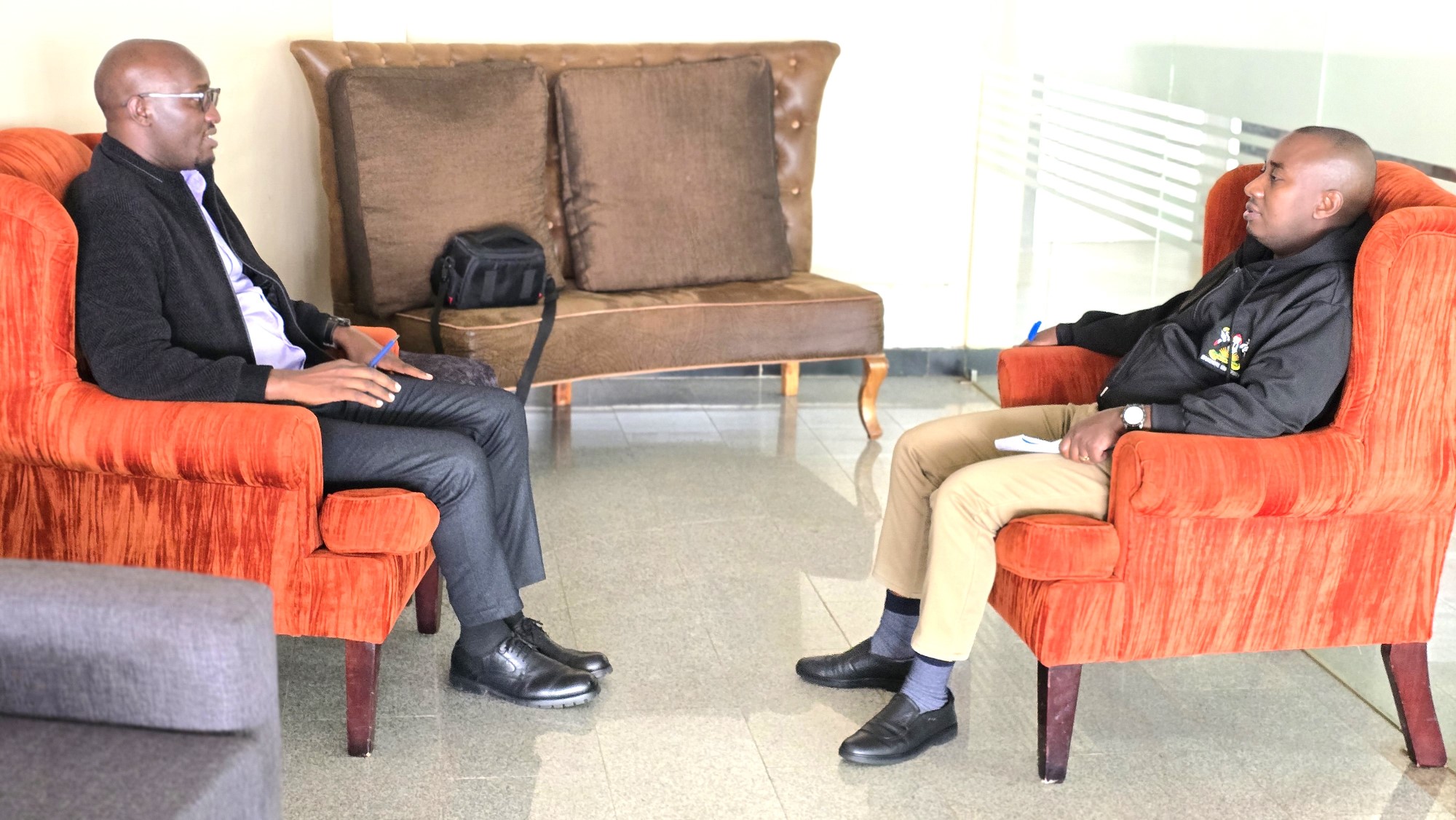
Although financial barriers hindered his progress to Form 4, Sedrick’s journey shows his dedication to education and his ability to overcome adversity. Fortunately, his elder half-brother, a businessman in the neighbouring town of Mbarara, reached out and helped him enrol in Form 4 at Kashari Secondary School in Mbarara in 2007.
Embarking on a Journey to Iraq in Search of Opportunity
In 2008, facing difficulties in pursuing his education, Sedrick made the brave decision to take up a security job during the conflict in Iraq between 2003 and 2011. At that time, many young Ugandans were recruited to provide buffer security support to the U.S. military in Iraq. During his time in Iraq, Sedrick not only earned a stable income to support his family but also cared for his mother and funded his two sisters’ education, ultimately improving their lives. Unfortunately, his contract ended in 2010, and he had to return to Uganda to write the next chapter of his life.
Joining the Mastercard Foundation Scholars Program at Makerere University
Upon returning to Uganda after his experience in the Iraq War, Sedrick recognised that education was the key to transforming his life. With a determined mindset, he committed himself to his studies, understanding the long-lasting impact they could have on his future. Thanks to his perseverance and the relationships he had built, Sedrick obtained a bursary from a religious organisation, enabling him to resume his high school education six years after his last time in school.
In 2015, he completed his high school education at Namirembe Hillside, where he studied Physics, Mathematics, and Chemistry. With 15 points in his final exams, he was admitted to the Bachelor of Science in Petroleum Geoscience and Production program, supported by the Mastercard Foundation Scholars Program at Makerere University.
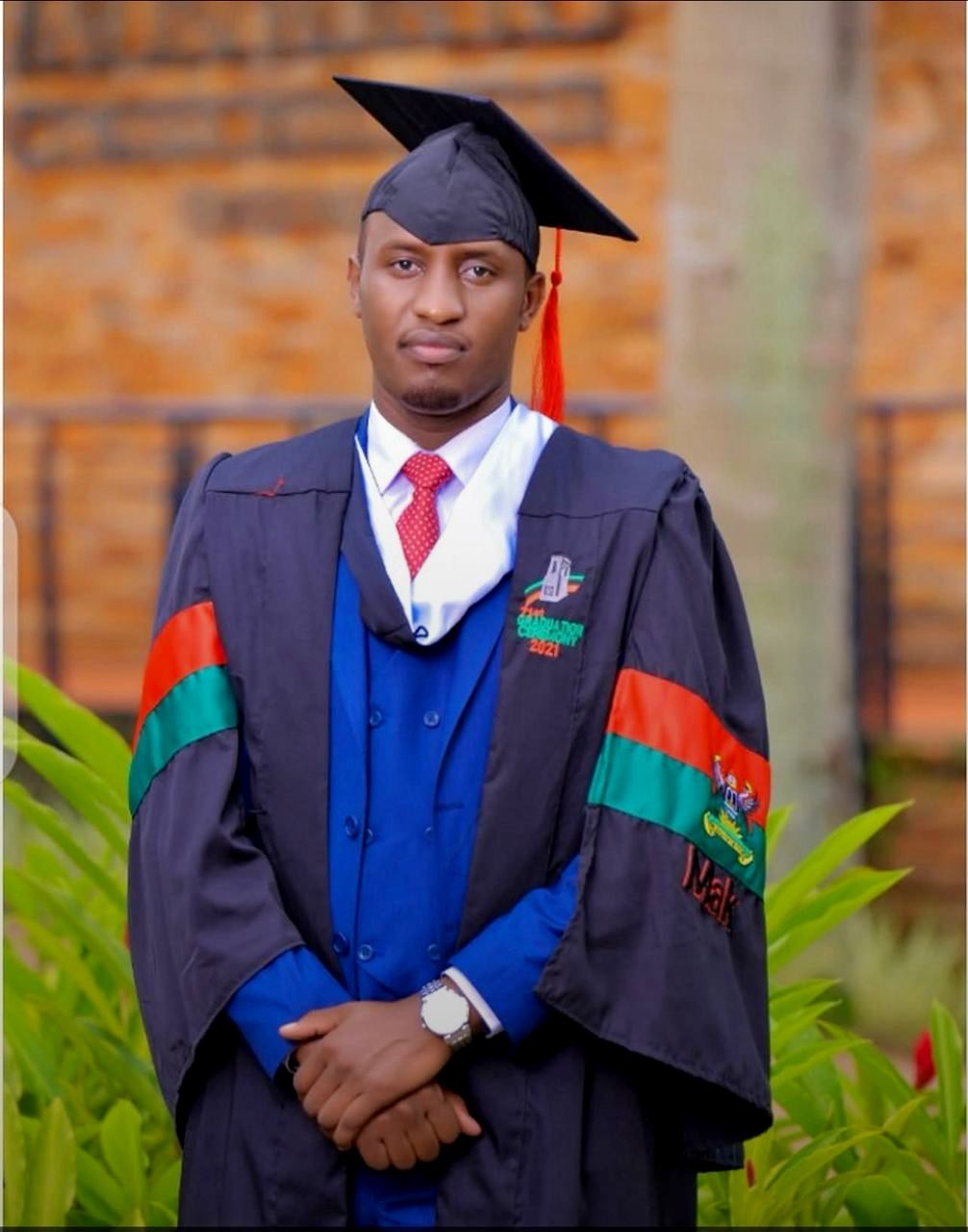
“Participating in the Mastercard Foundation Scholars Program at Makerere University significantly changed my life. For the first time, I was free from the constant worries about necessities like food and shelter. The Mastercard Foundation Scholars Program provided me with a supportive environment that allowed me to focus on my education and personal growth,” Sedrick shared.
Life After Makerere University
In 2020, after graduating, Sedrick had the opportunity to intern at the Uganda National Oil Company (UNOC) in the Reservoir Engineering section. During his internship, he demonstrated exceptional dedication and expertise in the oil and gas sector. His performance led to his promotion to a Graduate Trainee, which provided him with valuable experiential learning and expanded his exposure within the industry. This experience ultimately paved the way for his recruitment as a Petroleum Engineer at the Petroleum Authority of Uganda, where he now contributes to the regulation of petroleum exploration activities in the country.
Impact on the Community
Upon graduating from university, Sedrick took a proactive approach that set him apart from his peers. He launched Kleanerman, a social venture project designed to have a positive impact on his community. This initiative provides valuable short-term, on-demand domestic services—such as home cleaning, laundry, and babysitting—catering to the needs of busy city residents. Through Kleanerman, Sedrick has successfully created employment opportunities for several young men and women in his community of Kanyanya, fostering both economic growth and personal development.

Due to his own challenges during his educational journey, he has developed a deep commitment to helping other young people facing difficulties with school expenses. To date, he has successfully supported seven young individuals in his Lyantonde community, guiding them from primary through secondary education. His long-term goal is to establish a charitable organisation dedicated to providing young people facing barriers to education with the resources they need to access quality education.
Looking into the Future
Sedrick is dedicated to making a meaningful impact in Uganda’s oil and gas sector. He, along with his colleagues, is focused on ensuring that Uganda achieves its inaugural oil production by 2026.
“Each day, our collective efforts are directed toward successfully introducing Uganda’s first oil into the market by the end of 2026, and expanding the country’s petroleum resource base by discovering more oil reserves,” Sedrick states with evident pride. He is also committed to advancing his career in the oil and gas industry. From his earnings, he has enrolled for a Master’s degree in Petroleum Geosciences at Makerere University to deepen his skills and expertise in the sector.
Message to his fellow young people
Sedrick urges the current Mastercard Foundation Scholars enrolled in the Mastercard Foundation Scholars Program at Makerere University, as well as those at other universities, to make the most of the support provided by the Mastercard Foundation Scholars Program. He emphasises the importance of engaging in capacity-building sessions, skill development programs, mentorship opportunities, and psychosocial support. Sedrick asserts that this comprehensive support framework has been instrumental in transforming his life and shaping who he is today.
He references a quotation that has become a guiding principle in his life: “Until death, all defeat is psychological.” Through this quotation, he seeks to inspire his peers to persevere, emphasising the notion that individuals can always recover and succeed despite the myriad challenges they may encounter in their initial endeavours.
Words of Gratitude
“The impact of the Mastercard Foundation Scholars Program on my life is profound and transformative. I am sincerely grateful to the Mastercard Foundation Scholars Program at Makerere University and to the Mastercard Foundation as a whole. It is my hope and prayer that the Foundation continues to make a positive difference in the lives of numerous young individuals, particularly within the African continent.” Sedrick emphasises.
His supervisor speaks out
Sedrick’s immediate supervisor, Mr Derrick Katusiime, the Senior Petroleum Engineer in the Directorate of Exploration at the Petroleum Authority of Uganda, was full of praise for him both at work and outside.
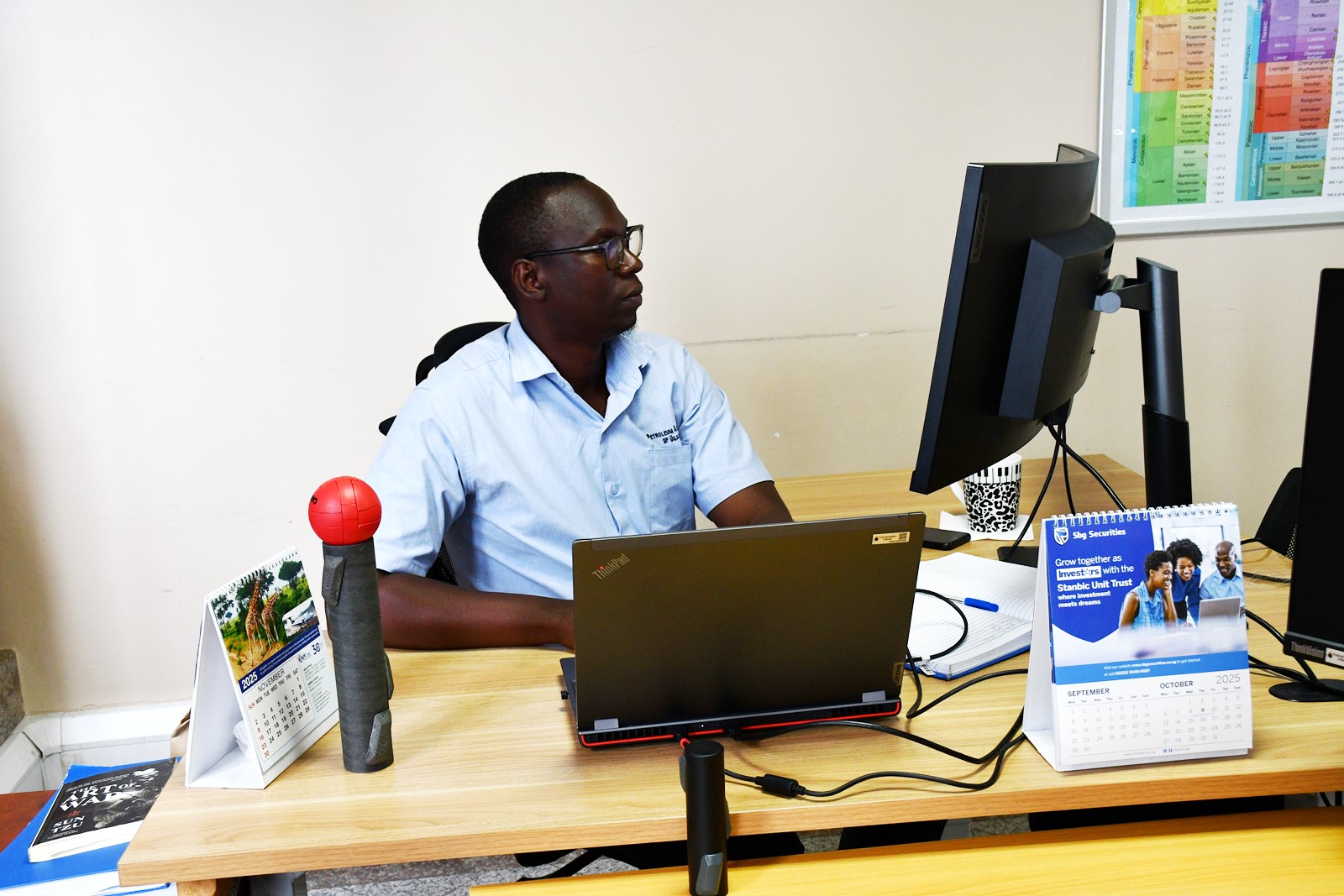
“Sedrick is very sociable and gets along well with everyone here at work, and his technical skills in just two years are impressive,” Mr. Katusiime pointed out.
Mr Katusiime further revealed that Sedrick champions values of integrity, active listening, and being an excellent team player. He goes the extra mile to complete tasks, takes on multiple responsibilities, and demonstrates humility and eagerness to learn.
Bernard Buteera is the Principal Communications Officer, Mastercard Foundation Scholars Program at Makerere University.
General
MLI Celebrates 10th Anniversary with Landmark Expansion Project
Published
5 days agoon
November 5, 2025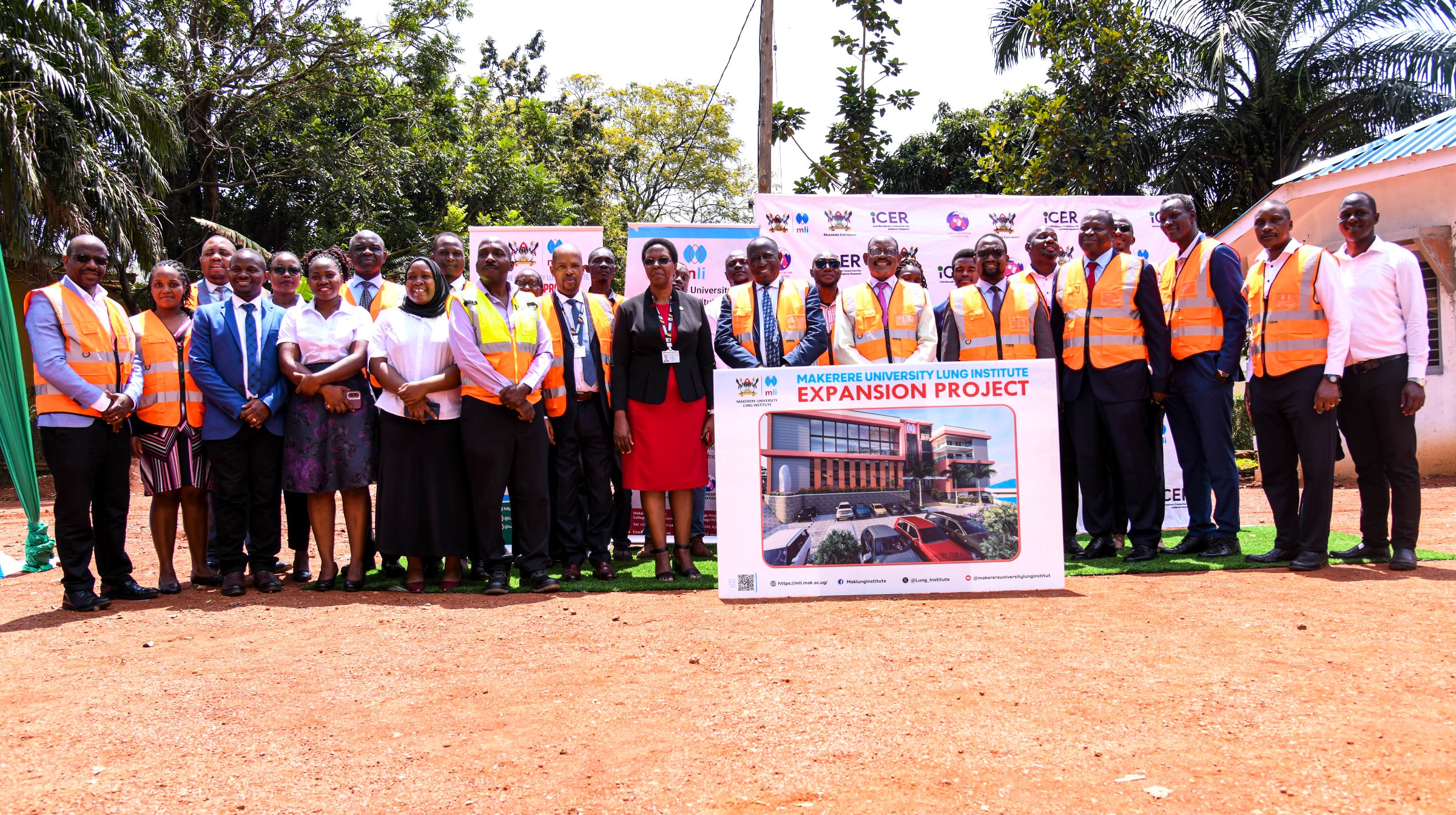
A few weeks shy of celebrating a decade of advancing lung health for all through research, training and patient care, the Makerere University Lung Institute (MLI) on 4th November 2025 unveiled a landmark expansion project, set to provide world-class care and contribute to global lung health research. The proposed six-level facility will house the Centre for Advanced Pulmonary and Intensive Care (CAPIC), Centre for Clinical Investigation (CCI), and Centre for Capacity Enhancement (CCE). Upon completion these units will deliver advanced respiratory care, cutting-edge research, and specialist training for pulmonologists, thoracic surgeons, and respiratory scientists. MLI’s year-long celebrations of a decade of existence will culminate in a grand event to be held on 27th and 28th November 2025.
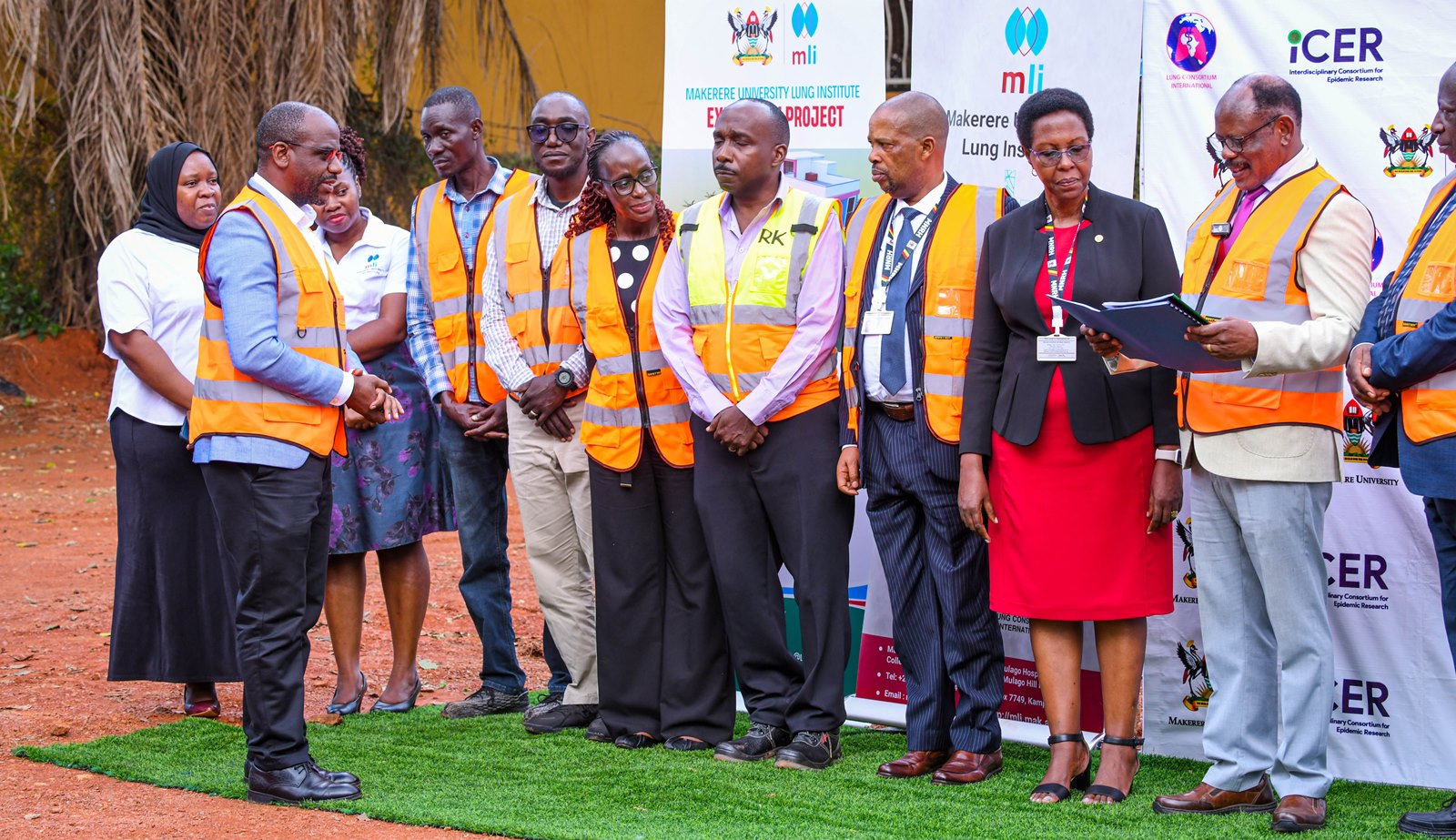
Officials laud MLI Milestones
Addressing officials at the site handover ceremony who included the Executive Director, Mulago National Referral Hospital (MNRH)-Dr. Rosemary Byanyima, Chairperson MLI Board of Directors-Prof. Charles Ibingira, Founder and Director MLI-Prof. Bruce Kirenga among others, the Vice Chancellor Prof. Barnabas Nawangwe commended MLI on milestones such as treating 20,000 patients to-date. “Thank you Prof. Kirenga for having the vision to start and grow the Lung Institute, and to hear that you have already raised some of the funds to commence this phase of the project is commendable,” Prof. Nawangwe lauded.
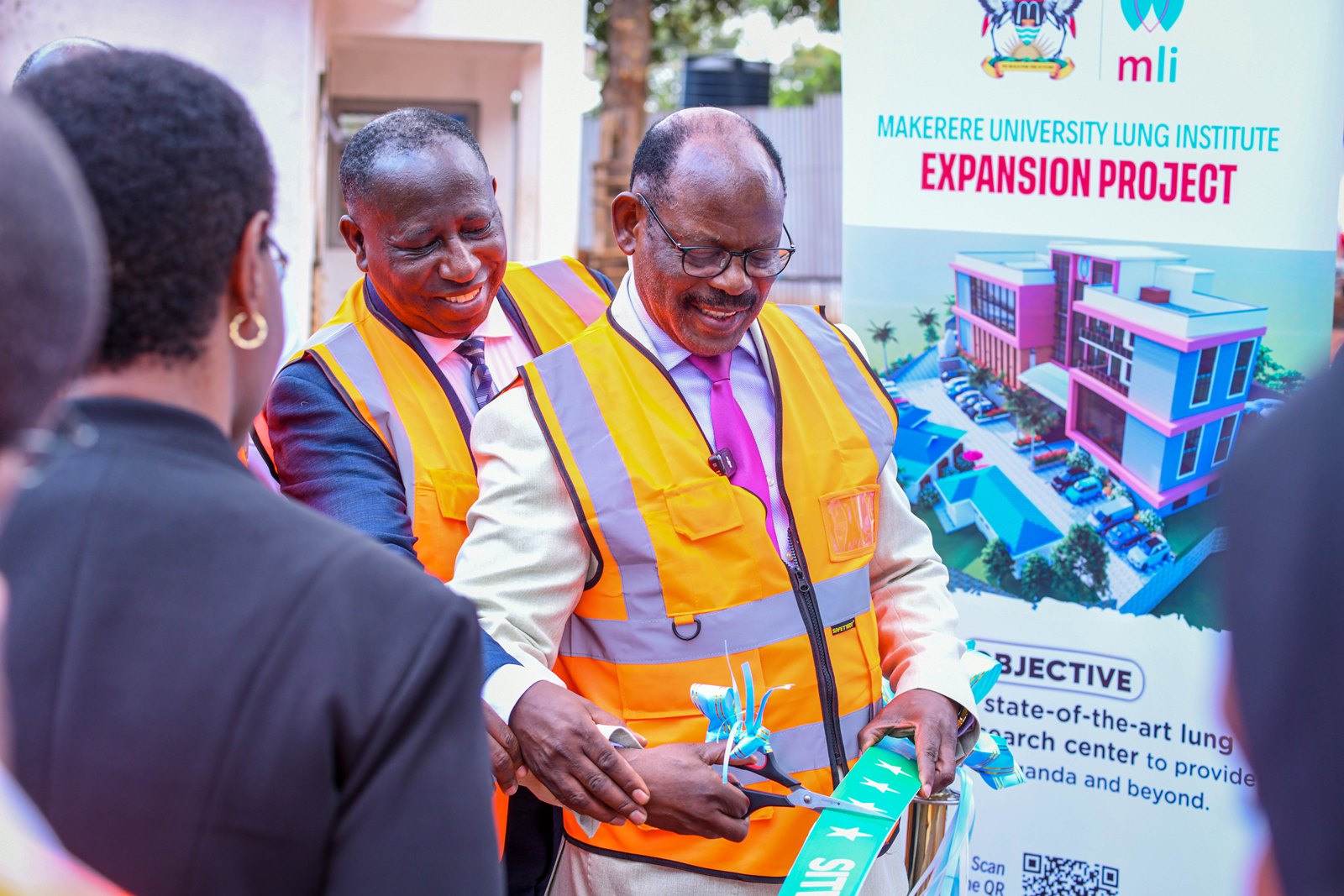
The MLI Expansion Project (MEP) is valued at UGX 66.84Bn (US$18.06M) comprising of construction of a 5,139sqm building valued at US14.04 M, specialist training valued at US$ 1.43M, and equipment valued at US$2.59M. It will be located on Mulago Hill on land allocated by the MNRH Board of Directors, a gesture the Vice Chancellor sincerely appreciated the Executive Director Dr. Byanyima for.
“Thank you for offering this land Dr. Byanyima. Makerere University and Mulago National Referral Hospital as top institutions our country must work together because if Makerere succeeds at conducting research, the hospital benefits” added Prof. Nawangwe.
MLI’s Role in Advancing Lung Health
Dr. Byanyima in her remarks acknowledged that it was during the CoVID-19 pandemic that the importance of lung health and the role played by MLI was brought to the fore. “But I’m glad that (pandemic) made the Lung Institute grow stronger and on the Hill (Mulago) when we have a unit growing stronger, we have an obligation to support it, not that we abdicate our responsibilities, but we know that it is shared responsibility.”
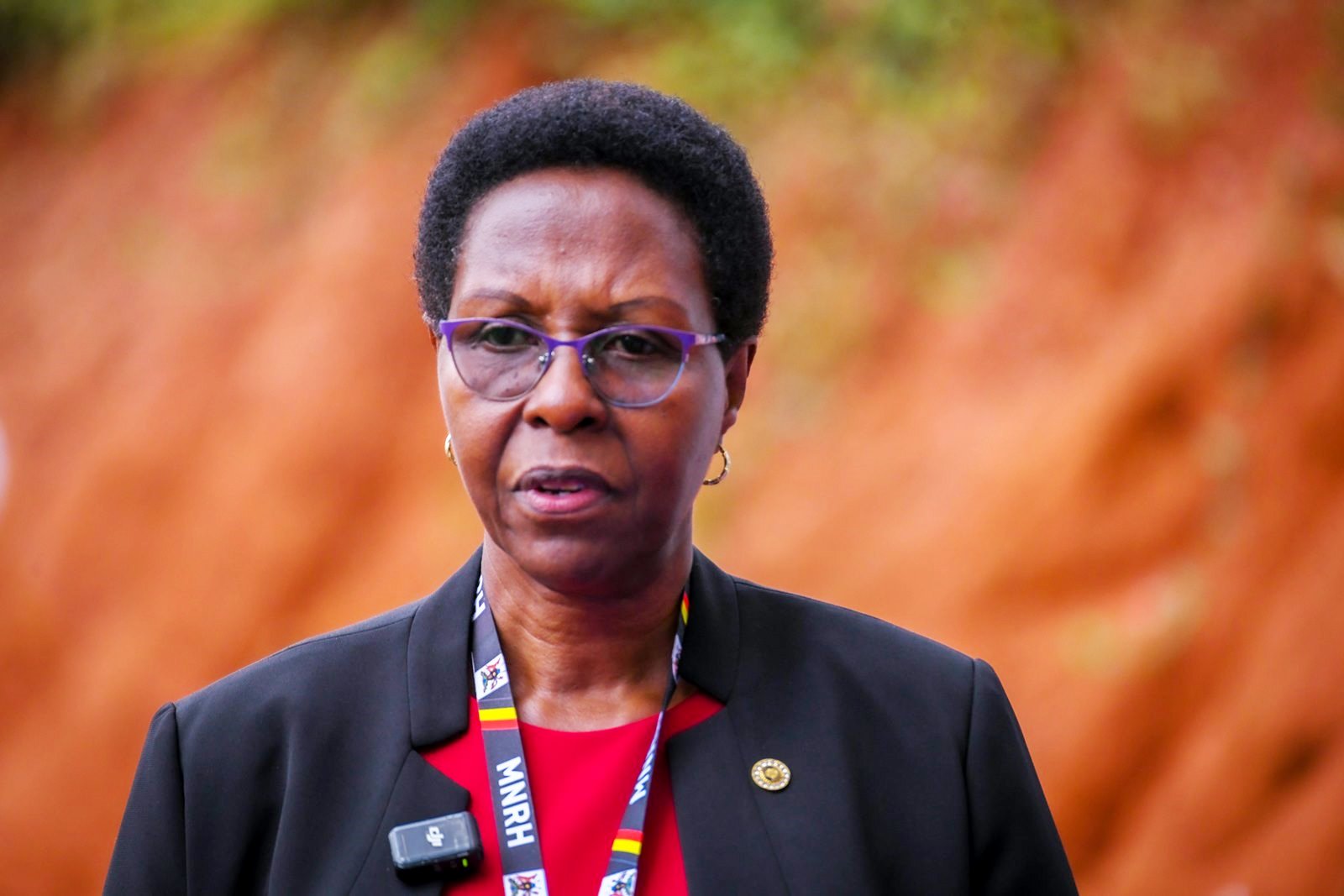
She therefore thanked Prof. Kirenga for his foresightedness in always thinking of projects that benefit the public. “Mulago Hill does not expand; there are many needs and as MNRH we are looking for land elsewhere. So for the Lung Institute to have been given an opportunity to get a few square metres is because you showed justified cause,” complimented Dr. Byanyima.
The Chairperson MLI Board acknowledged that the Lung Institute has not only received support from MNRH but from its mother Ministry of Health, and other Government entities such as the Ministry of Science, Technology and Innovation, which is supporting MLI’s Clinical Trials Centre and the current expansion project. Prof. Ibigira equally thanked the University for the good policies that facilitate the creation and growth of centres of excellence.
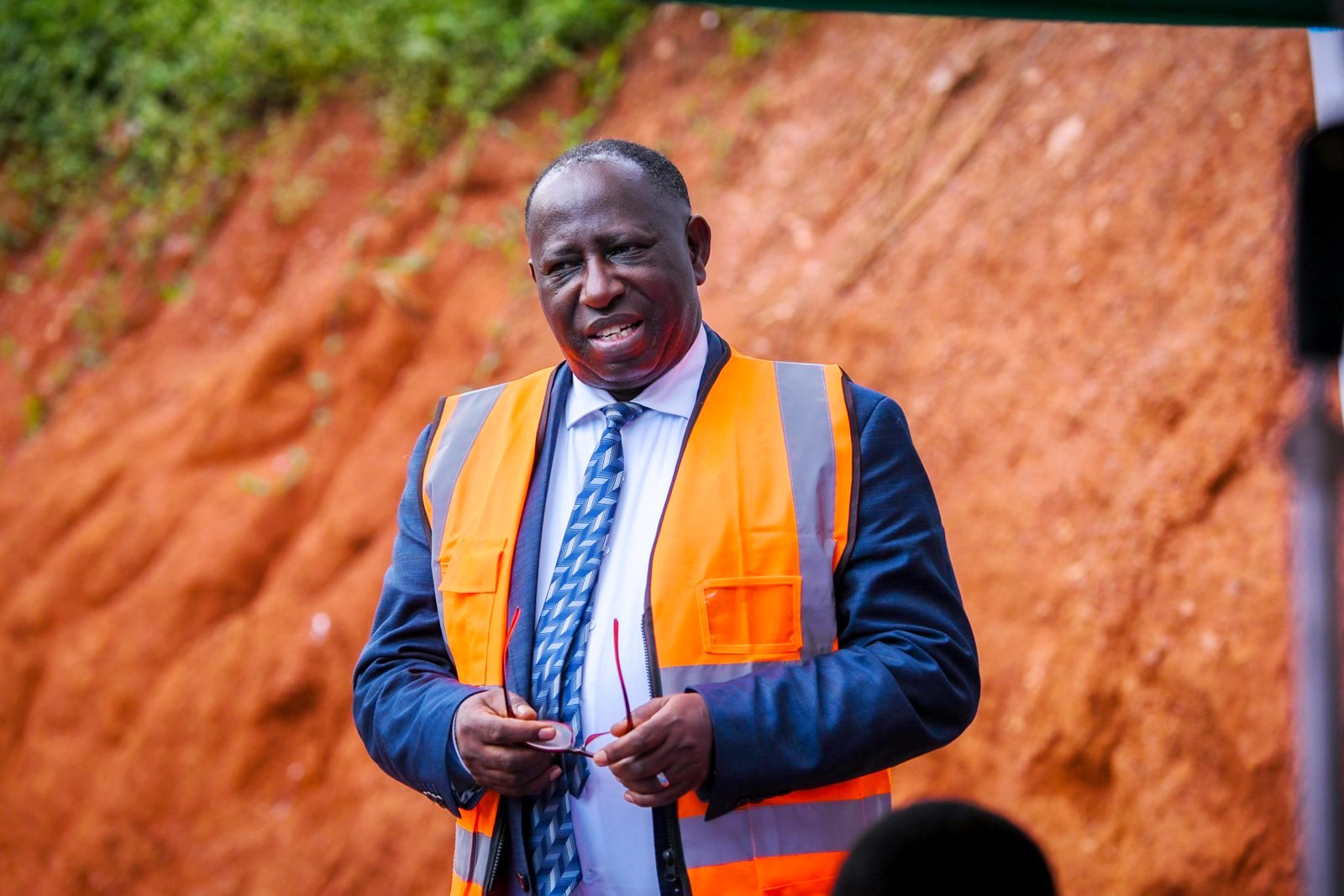
“As the board, we pledge to ensure that this expansion project is executed with excellence, transparency and timeliness, and look forward to a facility that will stand as a beacon of hope in innovation and global excellence in lung health” remarked Prof. Ibingira.
In his remarks, Prof. Bruce Kirenga noted that it is critical that centres of excellence such as MLI are located around MNRH so as to synergize general and specialized healthcare services offered to the public. He therefore thanked Dr. Byanyima and the MNRH Board for not only allocating land for MLI’s expansion but also the two buildings within the Hospital complex that have boosted Institute operations since its founding in 2015.
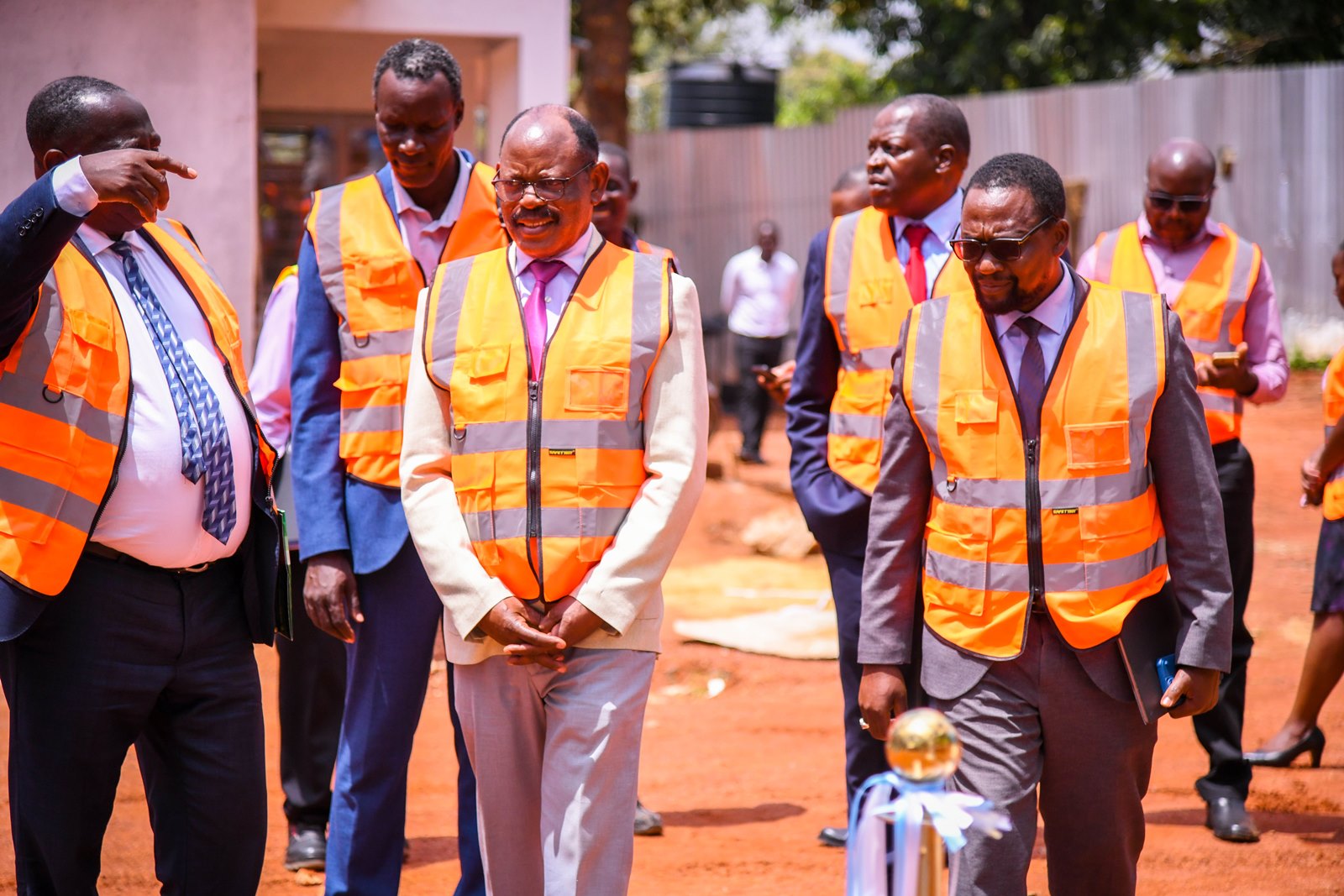
“These two buildings house the Clinical Trials Ward and the Vaccine House, which is the biggest cold room for vaccines in the country apart from National Medical Stores. This has enhanced our capability in research, storage of vaccines, and most importantly, we can also store a large amount of investigational vaccines, and right now we are being profiled as a centre for stockpiling investigational vaccines on the continent” Prof. Kirenga elaborated, before adding “and we have the largest specialist clinic in the region for treating people with complex lung diseases.”
Scope of works
According to Eng. Ezra Sekadde, Head of the Project Management Team, the construction phase of the MEP has been divided into three stages; 1a to renovate an existing onsite structure for MLI operations, 1b to construct the six-level facility, and 2 to complete internal and external finishes as well as concrete paving and access road works.

Construction will be undertaken by CK Associates within a period of seven months. The Fundraising Committee for the MEP will be chaired by Prof. Tonny Oyana, the Principal, College of Computing and Information Sciences (CoCIS).
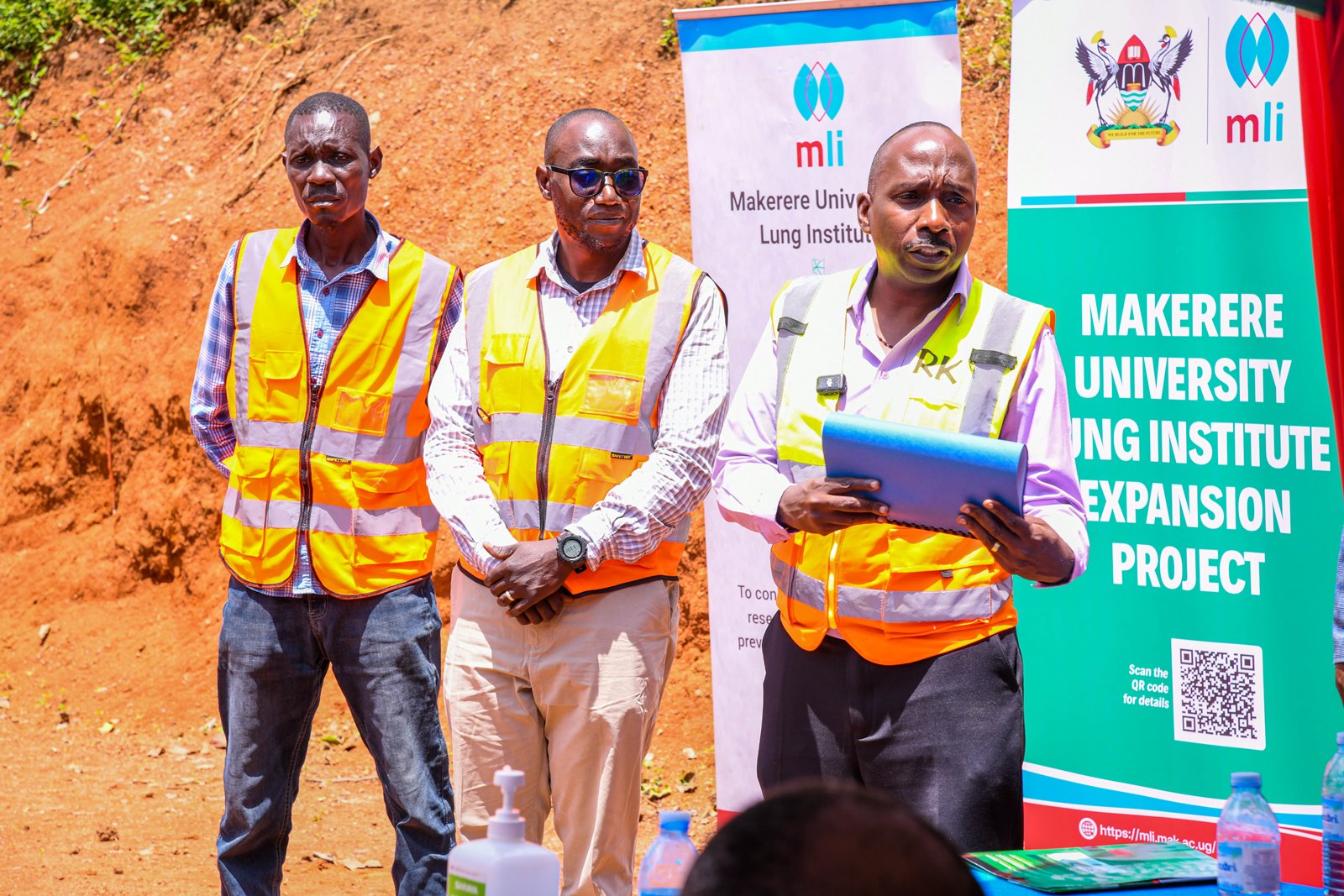
Trending
-

 General5 days ago
General5 days agoMeet Sedrick Nuwagaba, a Mastercard Foundation Scholars Program Alumni Contributing to Uganda’s Oil & Gas Industry
-
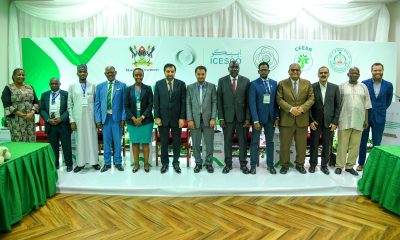
 Agriculture & Environment2 weeks ago
Agriculture & Environment2 weeks agoMakerere hosts International Conference on Food Systems Transformation for Climate Actions
-
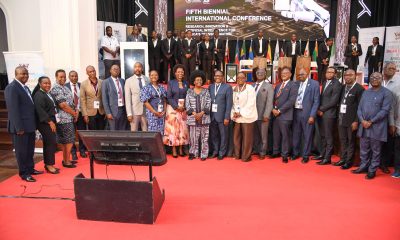
 Research2 weeks ago
Research2 weeks agoAfrica’s Future through Research and AI: Makerere Hosts ARUA 5th Biennial Conference
-
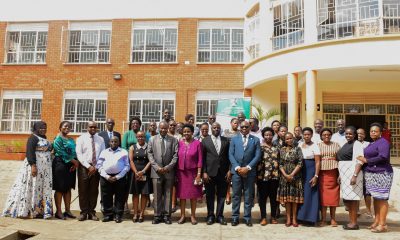
 General3 days ago
General3 days agoMakerere University Writing Centre trains first cohort of staff on professional minute writing
-
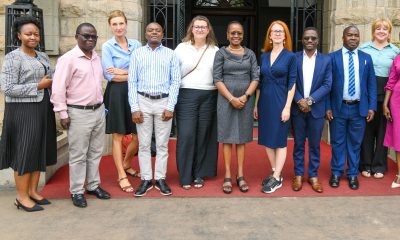
 General2 weeks ago
General2 weeks agoStrengthening Partnerships for Transformative Education: Makerere University Hosts Delegation from University of Malmö
